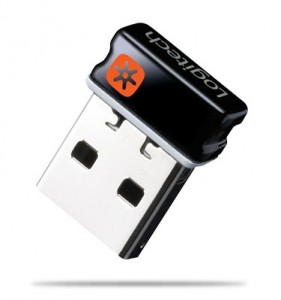Want to get the most of out Logitech’s Unifying Receiver or Nano Receiver on Ubuntu? If so, check out the powerful open-source tool Solaar.
Some of the best Logitech wireless keyboards and mice come with a small USB receiver. Ones with a sunburst icon on let you connect up to 6 compatible Logitech devices to your PC through a single dongle.
Most Logitech Unifying and nano receivers will work out-of-the-box in Ubuntu (and other Linux distributions), and the first device connected will work without any issues.
However, some Linux users encounter issues when pairing/unpairing additional devices, are unable to see battery levels, and can’t access advanced settings.
While a bit of command line know-how solves most of those issues a (more) convenient solution exists in the form of Solaar.
Solaar: Linux GUI for Logitech Devices
Solaar is an open-source GUI device manager giving you a handy, tray-based tool from which to pair and unpair compatible Logitech peripherals. It supports all Logitech Unifying, Bolt, Lightspeed, and Nano receivers.
One of the most compelling reasons to use Solaar is that can show battery levels for supported Logitech mice, keyboards, and touchpads. Plus, if these devices have additional settings (e.g., FN key options, smooth scrolling, etc) Solaar lets you access and configure them.
Now, Solaar does not support every single Logitech keyboard or mouse that works with a Unifiying Receiver (and later dongles based on it) but it does support the majority. Check through the supported devices list on the project Github page for details on what does/doesn’t work.
As a bonus, Solaar also boasts a comprehensive set of CLI options for those who’d like to take advantage of that in their workflows.
Install Solaar on Ubuntu
You can install Solaar on Ubuntu from the Ubuntu archives.
Open the Ubuntu Software, App Center, Synaptic, or any other GUI software tool to find and install it.
Alternatively, run the following command to install Solaar on Ubuntu:
sudo apt install solaar
If you’re on Ubuntu 20.04 or 22.04 LTS you can install a newer version of the Solaar app by first adding the project PPA:
sudo add-apt-repository ppa:solaar-unifying/stable
And then installing the app (if an older version is already installed, this command will upgrade it):
sudo apt install solaar
Other Linux distributions, such as Arch, OpenSUSE and Mageia, may have the app in their repositories, though users can also download pre-built packages from the project’s Github page too.
Once installed, users can launch Solaar from the application launcher.
Screenshot credit: HandyGadget
- Source: Solaar, Via Lukas (Tip Form)


